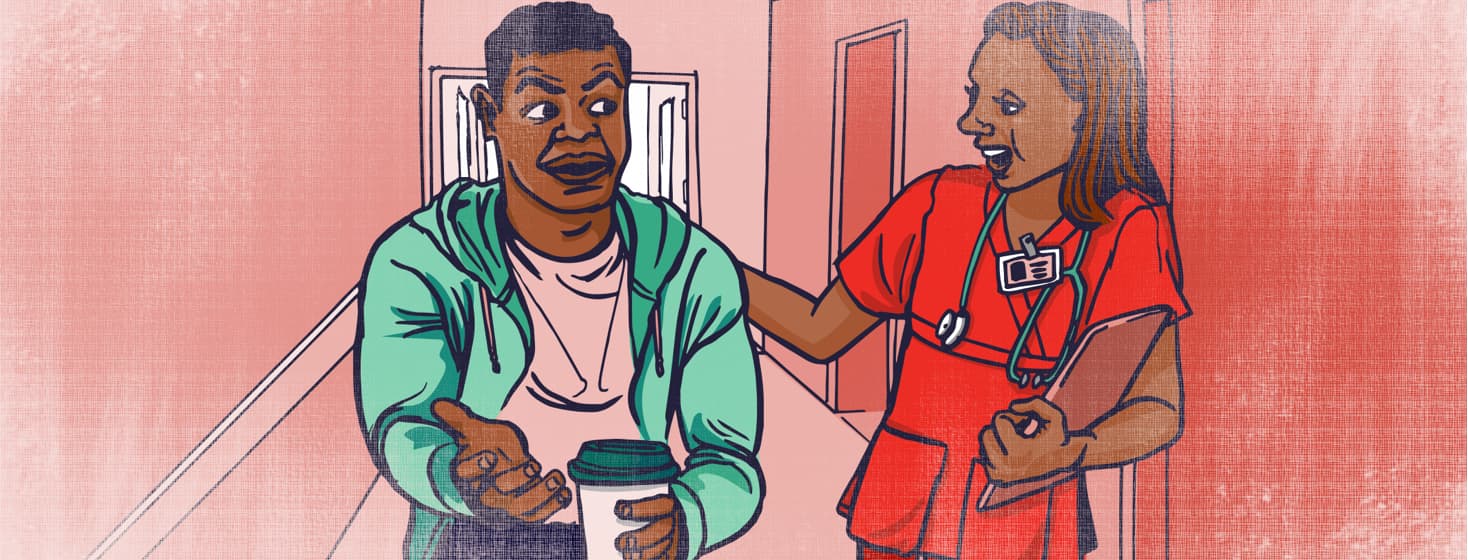What Are Heart Failure Function Clinics?
Editor's note: This article describes clinics in the Canadian health system. Clinics that offer heart failure care in other parts of the world may differ.
If you have heart failure (HF), you may be familiar with heart failure clinics. This is a clinic that helps support people with HF once they have been discharged from the hospital and/or newly diagnosed with HF. The goal of these clinics is to help improve symptoms, reduce the risk of being hospitalized again, and prolong the person's life.
Which healthcare professionals work in HF clinics?
HF clinics tend to be multidisciplinary in nature. This means that there are various types of healthcare professionals who work at the site. For example, the following team members may be part of a patient's care:1
- Cardiologist
- Cardiac nurse
- Pharmacist
- Physiotherapist
- Dietician
- Psychologist
- Social worker
What do you do at an HF clinic?
Enrollment in this type of clinic is usually limited to a few months. During visits, you may receive:1,2
- Education regarding your condition, diet, and other lifestyle factors that affect the condition of your heart
- Exercise demonstration and support
- Tests and other assessments conducted by a specialized heart team
- Referrals to other services if you are eligible
How effective are they?
An analysis of the clinical effectiveness of HF clinics by the Canadian Drug Expert Committee (CDEC) revealed that:1
- People who are part of a multidisciplinary HF clinic have a lower risk of being hospitalized due to HF-related causes.
- People who were followed by an HF clinic were more likely to be prescribed medications that were in line with current guidelines. They were also more likely to achieve target doses of these drugs.
- Adherence (or compliance with medications) was higher for certain drugs in people who were followed by an HF clinic. For example, people were more likely to take their beta-blocker on time and not miss doses if they were enrolled in such a clinic.
Availability
Depending on where you live, you likely need a referral from your doctor in order to access an HF clinic. There may also be waitlists. These clinics are not readily available everywhere. In these instances, making sure you have regular visits with your general practitioner is important.2
What should you bring to your first HF clinic appointment?
If you have been referred to an HF clinic, I recommend getting organized before your first appointment. Things that you may want to consider include:
- Ensure you have your identification with you (for example, a healthcare card).
- Bring a list of your most recently prescribed medications. If you are unsure, you can request this list from your pharmacy. The past year is generally what is requested, but some clinics may require a longer history.
- If you take any over-the-counter (OTC) medications, bring either a list or the bottles of these medications with you to the clinic. Many heart medications can interact with OTC products including herbal medicines. So it is important for your health team to know if you are taking anything that is not prescribed.
Have you been to a heart failure function clinic? If so, what was your experience? Share your story by clicking the button below!

Join the conversation